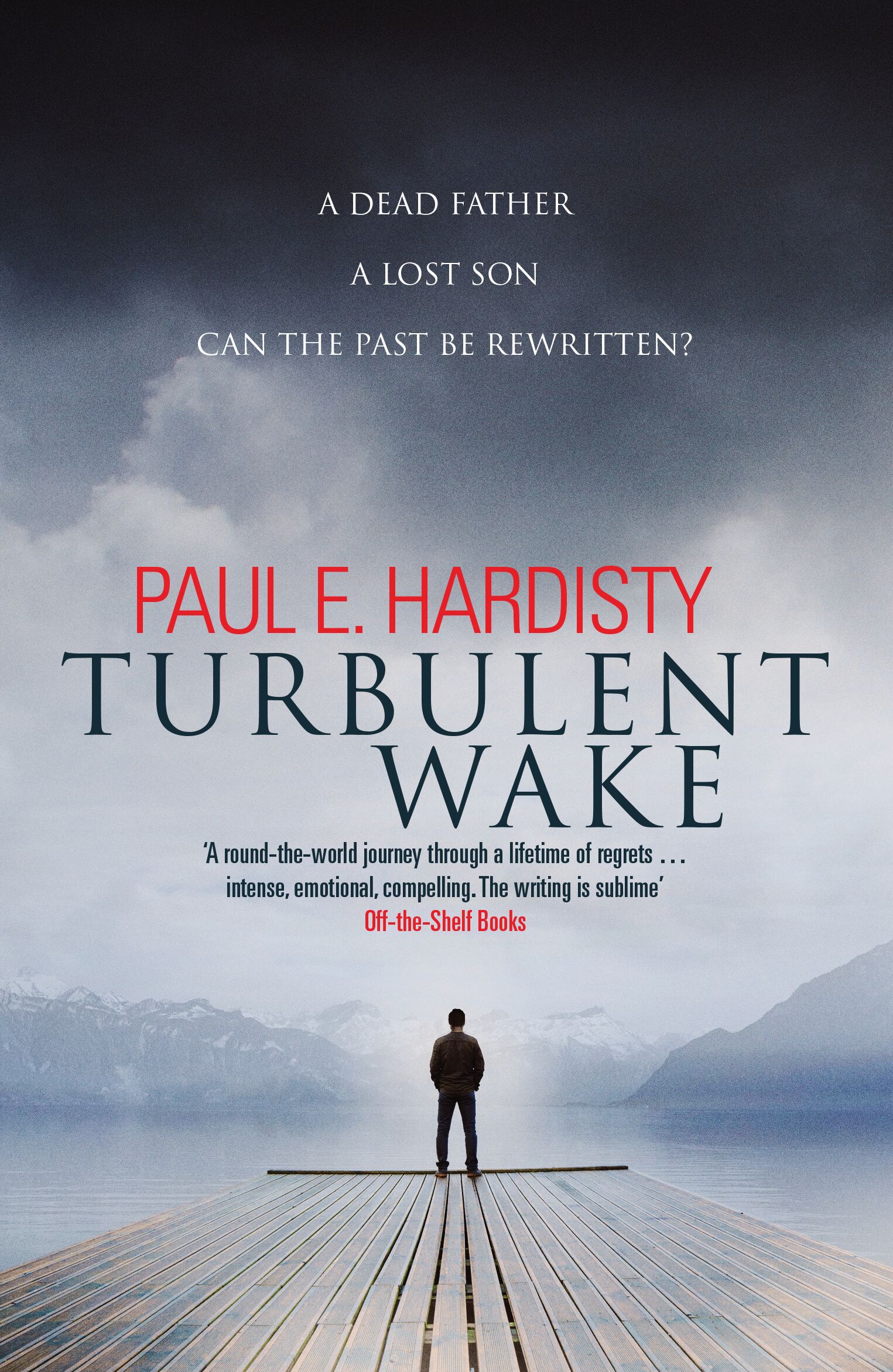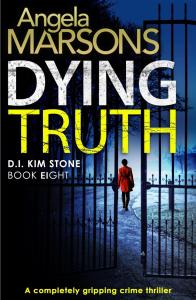
Today I’ve got an extract from Turbulent Wake by Paul E Hardisty. I haven’t managed to get this book to the top of my overflowing tbr pile, but it sounds brilliant and I must read it soon. I hope that the extract will tempt you to read it too!
Blurb:
A bewitching, powerful and deeply moving story of love, loss and
grief. This extraordinary departure from the critically acclaimed
thriller writer Paul E Hardisty explores the indelible damage we
can do to those closest to us, the tragedy of history repeating
itself and ultimately, the power of redemption in a time of
change. Paul drew on his own experiences of travelling around
the world as an engineer, from the dangerous deserts of Yemen,
the oil rigs of Texas, the wild rivers of Africa, to the stunning
coral cays of the Caribbean.
Ethan Scofield returns to the place of his birth to bury his father,
with whom he had a difficult relationship. Whilst clearing out the
old man’s house, he finds a strange manuscript, a collection of
vignettes and stories that cover the whole of his father ’s turbulent
and restless life.
Extract:
March 5th. On the plane, flying to London
You never really know anyone. Especially the ones you love.
I push the stack of papers into the seatback pocket and take a deep breath of pressurised air. Seven miles below, the checkerboard prairie stretches away like a looping dream, one where you’re stuck in a place and you can’t get out, even though you know it’s a dream and if you could just wake up it would be over. Except, of course, it’s not. It’s my life, laid out before me in endless miles of iced-over prairie, a recurring pattern of abandoned hope and gutted wilderness that unspools at the terminal edge of a horizon that once held so much promise. The brother I didn’t get a chance to know. The mother who disappeared. The father who pushed me away. The wife who got sick of me and found someone else. And now, apparently, the uncle I never even knew I had.
If family defines you, then I am perilously fucking close to indeterminate.
And this is how he decides to tell me.
I went my whole life thinking that I had my old man pegged. Sure, he’d travelled some, even taken me with him a few times when I was younger, when my mother was still around. But my strongest memo- ries are of him arriving and leaving, going away for hours at a time, returning red-faced and covered in sweat, and then for days and weeks for work, always on his way to the airport or coming back from it. Occasionally, he’d bring me something home: a stuffed baby alligator the time he went to Louisiana; a tiny woven prayer mat from Jordan (for a six-year old?); a Calgary Flames hockey jersey from Canada (now, that was cool). Most of the time, though, he was just absent, even when he was home. Usually, it was me and Mum and my brother, and then later just me and Mum, in whatever place he’d dragged us all to at the time. Now, it’s just me.
Everything about my old man was from another time. The clothes he wore. The way he spoke and acted around other people. The stories he told. I mean, what kid who has grown up with access to the internet wants to hear stories about steam trains and writing love letters (the old-fashioned kind with paper and pen and envelopes and stamps) and getting places by ship, making calls from phone boxes and using fax machines and typewriters and all that old museum stuff. I can remember now, looking back, just tuning out when he started one of his stories. Not that he did it that often; just every once in a while. Usually when he’d had a couple of whiskies after dinner – when we still sat down, the four of us, and ate dinner as a family – he’d start into one. And then, well, I’d just sit there watching his mouth move and the way his neck would tense up as he spoke and that stupid way he’d furl his brow for emphasis, and I never heard a word. Now, I wish I’d listened.
No wonder he left all this shit behind.
The funeral was a pretty lame affair. Not many people showed up. A couple of his old friends came, guys with old names like Robert and Paul and Tobias, looking like they were planning to follow him in the not-too-distant future, with their thinning grey hair and grey beards and those watery, faraway eyes that weep regret. Makes you wonder. A whole life lived, and I bet not even those old guys with their burst-blood-vessel faces and dodgy, shuffling gaits had the slightest idea who he really was, what was really going on inside that head. I mean, I as sure as shit never did. And I know my mother never did either.
The funeral home did a crap job. I regret doing it that way, now. The pastor or whatever he was started out calling him Walter. Did it three times, Walter this and Walter survived by such and such. The prick didn’t see me waving at him till he’d blown it three times, me sitting there in the front row, mouthing Warren. Warren, for fuck’s sake. It wasn’t how he would have wanted it, I know. Mostly because he wouldn’t have wanted anything. ‘Just throw me over the side so the sharks can get me’, I remember him saying once, somewhere – was it on that last sailing trip we all took together, me, my brother Rhys, Mum and Dad, in the Greek Islands? I must have been eight, seven maybe. I still have vivid memories of some of it: the dolphins riding our bow wave that time, the way they looked up at me with those dark, knowing eyes; the view from the highest point on one of the islands – I can’t remember the name of the place now – looking out across the sea and all those pretty white buildings along the shore; rowing back to the boat one night in the dinghy, Dad at the oars, Mum in the bow laughing at something he’d said, the lights from the village dancing on the dark water all around us like stars.
She was beautiful, my mother. Everyone said so. I don’t have many photographs of her, or of him for that matter. In one of the few that have somehow survived, they are sitting under an old stone archway. The sea is faded blue behind them. Mum is in a short skirt. Her long legs are folded elegantly to one side, her honey and rosewood hair blows around her face. She is smiling. She had great teeth, a big mouth, high cheekbones, a ski- jump nose that was a little too big for anyone to call her looks perfect, but she was beautiful in a strong-looking kind of way – robust and healthy and symmetrical with lovely blue eyes. In contrast, he looks flawed. A nose broken one too many times. An inverted arch of teeth that left dark gaps on each flank of his rarely seen smile (other than his two front slabs and molars, his top adult teeth never came in, so the small baby teeth were still there). He is unshaven, his hair longish, sea-and-sun waved, unruly. Dad is holding Mum’s hand. In that moment, they look happy. He was never in her league, and I know for a fact that he knew it, too. He told me once, I can’t remember when or where. ‘Son,’ he said, ‘always marry up in the gene pool. I sure did.’
He would have hated it, today, the funeral. I don’t know why I did it. Seemed right at the time – to mark his passing somehow. I’ve always hated that use of the word: passing. Just call it what it is. Death. The End. And we never talked about it, of course, at the end. Not like we didn’t have the time. I went to see him, of course – more than once – but he didn’t want me there, made that very plain. ‘Don’t you have some- thing better to do?’ he said to me. I mean, what does a guy say to that? Fact was, I did have better things to do. So in the end you get what you get, Dad. Not like it makes any difference. Not one bit.
And I suppose it makes finding all this stuff that much more of a mystery. I hadn’t been inside the place for ages, not since the year I moved to London, the year I met Maria and everything was so great – before it all started to go to shit. But that’s another story. From the outside, my dad’s place looked much the same, the caragana hedge out front that much taller, the paint on the shiplap siding peeling, the blue spruce we planted that spring when I was a kid, huge now, towering. I’d only gone to have a quick look, figure out what it would take to have someone come in and clean the place out, so I could put it on the market. I was only in town for a couple of days. I had to organise the funeral, sort out stuff with the lawyers, and then get back to London for an important work meeting. I knew the place would be a mess, but I was totally unprepared for what I found.
About The Author:

Canadian Paul E Hardisty has spent 25 years working all over the world as an engineer, hydrologist and environmental scientist. He has roughnecked on oil rigs in Texas, explored for gold in the Arctic, mapped geology in Eastern Turkey (where he was befriended by PKK rebels), and rehabilitated water wells in the wilds of Africa. He was in Ethiopia in 1991 as the Mengistu regime fell, and was bumped from one of the last flights out of Addis Ababa by bureaucrats and their families fleeing the rebels. In 1993 he survived a bomb blast in a café in Sana’a, and was one of the last Westerners of out Yemen before the outbreak of the 1994 civil war. Paul is a university professor and CEO of the Australian Institute of Marine Science AIMS). The first four novels in his Claymore Straker series, The Abrupt Physics of Dying, The Evolution of Fear, Reconciliation for the Dead and Absolution all received great critical acclaim and The Abrupt Physics of Dying was shortlisted for the CWA John Creasey (New Blood) Dagger and was a Daily Telegraph Thriller of the Year. Paul is a sailor, a private pilot,
keen outdoorsman, conservation volunteer, and lives in Western Australia.


 Opening in the mid-nineteenth-century, this dazzling debut novel traces the voyage of Song, a boy who leaves his impoverished family in rural China to seek his fortune. Song may have survived the perilous journey to the colony of British Guiana in the Caribbean, but once there he discovers riches are hard to come by, as he finds himself working as an indentured plantation worker.
Opening in the mid-nineteenth-century, this dazzling debut novel traces the voyage of Song, a boy who leaves his impoverished family in rural China to seek his fortune. Song may have survived the perilous journey to the colony of British Guiana in the Caribbean, but once there he discovers riches are hard to come by, as he finds himself working as an indentured plantation worker. I am the Editor of Vanity Fair On Travel.
I am the Editor of Vanity Fair On Travel.
 STALKER, Lisa Stone
STALKER, Lisa Stone
 The shocking new thriller from the #1 bestseller
The shocking new thriller from the #1 bestseller

 How far would you go to protect your darkest secrets?
How far would you go to protect your darkest secrets?
 A bookish scholarship student, Owen Whiting has high hopes of Oxford, only to find himself immediately out of place. Then he meets Zachary Foedern from New York. Rich and charismatic, Zach takes Owen under his wing, introducing him to a world Owen has only ever read about.
A bookish scholarship student, Owen Whiting has high hopes of Oxford, only to find himself immediately out of place. Then he meets Zachary Foedern from New York. Rich and charismatic, Zach takes Owen under his wing, introducing him to a world Owen has only ever read about. Ryan Ruby was born in Los Angeles in 1983. He has written for The Baffler, Conjunctions, Lapham’s Quarterly, n+1, and the Paris Review Daily among other publications, and has translated two novellas from the French for Readux Books. He lives in Berlin.
Ryan Ruby was born in Los Angeles in 1983. He has written for The Baffler, Conjunctions, Lapham’s Quarterly, n+1, and the Paris Review Daily among other publications, and has translated two novellas from the French for Readux Books. He lives in Berlin.




